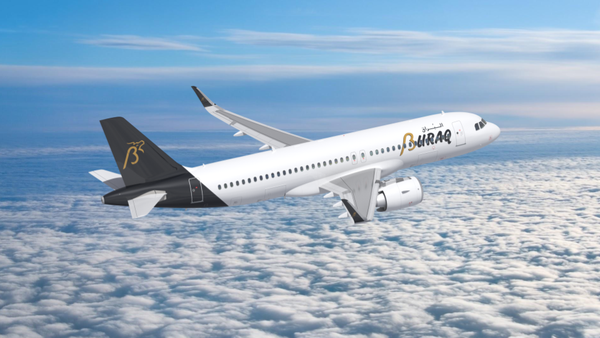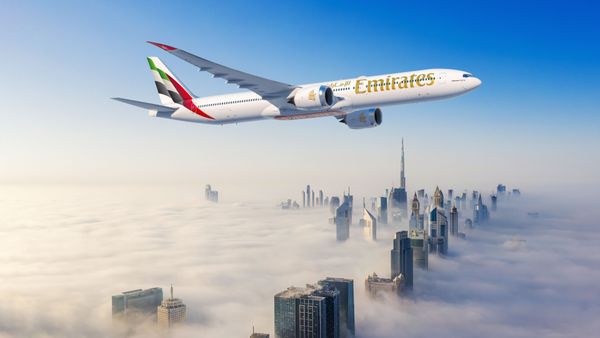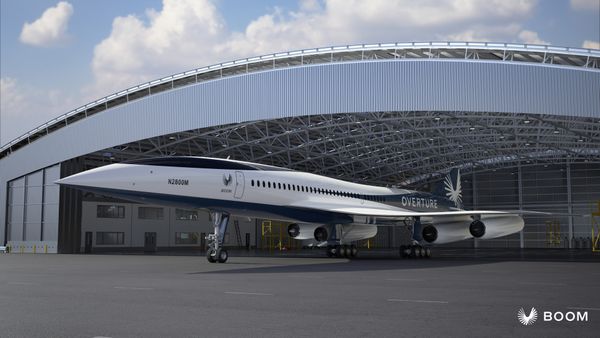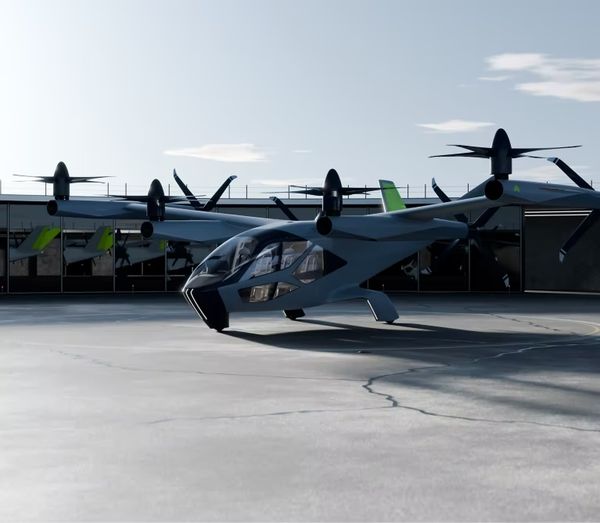Supernal, the Hyundai Motor Company subsidiary focusing on advanced air mobility (AAM), is making significant progress towards introducing an electric vertical take-off and landing (eVTOL) aircraft. At an innovation summit in Las Vegas in January, the company unveiled its product, the S-A2 aircraft. Supernal also announced deals with the Singapore Economic Development Board (EDB) and the Civil Aviation Authority of Singapore (CAAS) at the Singapore Airshow this month.

Introducing its eVTOL
S-A2 is an eVTOL that can accommodate four passengers and one pilot. Supernal introduced a prototype at the annual Consumer Electronics Show (CES) in Las Vegas on January 9. S-A2 expands on the S-A1 product the company revealed at CES in 2020. Supernal's product stands out because it combines aerospace engineering and the automotive expertise of its parent company, Hyundai.
Jaiwon Shin, the Hyundai Motor Group's President and Supernal's CEO said about the S-A2 in January:
"From the beginning, Supernal has been on a mission to create the right product and the right market at the right time. The unveiling of S-A2 demonstrates our unwavering commitment to deliver on that mission with a safe, efficient vehicle design that provides a clear path to market entry. By leveraging our talented 600-person team, the vast technical and business capabilities of Hyundai Motor Group and trusted aviation suppliers around the world, Supernal is ready to deliver a new era of flight."

The Specifications and Technical Components
S-A2's maximum speed of 120 miles per hour (193 kilometers per hour) and altitude of 1,500 feet (457 meters) make the eVTOL effective for shorter flights. Urban air mobility (UAM) is a subset of AAM that uses eVTOLs to carry passengers and cargo at lower altitudes within urban areas. S-A2 can initially accommodate services that require flying between 25 and 40 miles (40 and 64 kilometers).
Supernal's eVTOL is designed with an electric propulsion architecture and eight all-tilting motors. The aircraft solves the problem of noise pollution within cities since it takes off, flies, and lands with minimum noise. S-A2 creates 65 decibels (dB) of noise during departure and landing and 45 dB while airborne. These numbers are much less than traditional helicopters, which can generate over 100 dB from their operations.
.jpg)
The vehicle's technical specifications are included with efficiency, quality, and cost-effectiveness in mind. Its commitment to passenger safety and comfort is important as Supernal aims to receive certification for the S-A2 from various aviation regulators such as the U.S. Federal Aviation Administration (FAA). The battery will eventually be replaced as technology advances to meet the increased global demand for electric aircraft. UAM aims to revolutionize transport within urban areas while helping the aviation sector reach its target of net zero carbon dioxide emissions by 2050.
Luc Donckerwolke, the Hyundai Motor Group's Chief Design Officer and Chief Creative Officer said about Supernal's unique combination of aerospace and automotive innovation:
"S-A2 is a true representation of 'auto meets aero'. Drawing on the competence of Supernal's top aerospace engineers and Hyundai Motor Group's world-renowned automotive designers to create human-centric design that maximizes passenger experience and safety."

The Singapore Airshow
The 2024 Singapore Airshow focused heavily on developing the AAM industry in the Asia-Pacific region. Several companies signed agreements to expand eVTOL operations in Singapore and nearby countries. AAM was part of the Airshow alongside sustainable aviation fuel and various Asian airlines ordering aircraft from Airbus, Boeing, and Comac. Supernal signed two Memorandums of Understanding (MOUs) with Singaporean companies on February 20, the Singapore Airshow's second day.
Supernal announced MOUs with EDB and CAAS. The two agreements will include research and development (R&D), creating a regulatory framework, and encouraging Singaporeans to use AAM. Furthermore, Supernal's collaboration with EDB and CASS will help establish Singapore as a center for Southeast Asia's AAM industry. Singapore is considered the region's most important city due to its large presence in financial services and international trade, with many multinational companies having their regional headquarters in the city-state.
.jpg)
Shin said about the agreements established at the Singapore Airshow:
"Working with EDB and CAAS exemplifies how collaboration between government and industry can help make AAM a reality. Our approach is to develop mutually beneficial partnerships like these to create a tenable business and operational case for stakeholders across the value chain - from manufacturers and regulators to operators and passengers. Insights from both entities will maximize outcomes and prove the value of AAM, especially in a forward-thinking market like Singapore."
Supernal's partnership with EDB will focus more on AAM's economics. Their activities include market analysis and feasibility studies for introducing AAM in Singapore. Supernal's expertise in aerospace and automotive innovation and EDB's economic prowess will come together for AAM to benefit Singapore's economy. This partnership will cover areas such as maintenance, repair, overhaul (MRO) and vehicle assembly.
Meanwhile, Supernal's collaboration with CAAS will focus on making AAM a reality through strong regulatory and safety standards. CASS will develop a framework for aircraft certification, entry into service, and establishing vertiports. Both companies will collaborate on developing standards for AAM infrastructure, charging, airworthiness, and operations. Supernal and CAAS will also work with other stakeholders to enhance the public's understanding of AAM.

Partnership with Korean Air
Finally, Supernal plans to work with commercial airlines to expand eVTOL operations in the U.S. and international markets. In October 2023, the company signed a strategic partnership with Korean Air to accelerate the design of the eVTOLs and grow the AAM ecosystem in South Korea. The partnership will include exchanging technical data, meeting Korean AAM regulations, and testing eVTOL operations.
Korean Air CEO Keehong Woo said about the partnership:
"We will cooperate in deriving requirements for eVTOL aircraft optimized for UAM operations based on Korean Air's accumulated data on aircraft operation and customer boarding experience. Based on this, we will strive to develop a business model and build an operating system suitable for Korea's environment."
Meet the Startup Building the Plane Everyone Else Said Was Impossible » Emirates Orders 65 Additional Boeing 777-9 at Dubai Airshow 2025 » The Hidden Pilot Problem That Could Make or Break Boom's Supersonic Jet »
Comments (0)
Add Your Comment
SHARE
TAGS
NEWS Supernal Hyundai eVTOL Advanced Air Mobility Urban Air Mobility Singapore Singapore Airshow South Korea Korean Air Innovation Technology Electric Aircraft Future Startup EconomicsRECENTLY PUBLISHED
 Buraq Air Expands Fleet with New Airbus A320neo Aircraft Order
Buraq Air has made a significant commitment to expanding its fleet with an order for 10 Airbus A320neo aircraft, reflecting its focus on modernization and sustainability in the aviation sector.
NEWS
READ MORE »
Buraq Air Expands Fleet with New Airbus A320neo Aircraft Order
Buraq Air has made a significant commitment to expanding its fleet with an order for 10 Airbus A320neo aircraft, reflecting its focus on modernization and sustainability in the aviation sector.
NEWS
READ MORE »
 Emirates Orders 65 Additional Boeing 777-9 at Dubai Airshow 2025
Emirates has announced an order for an additional 65 Boeing 777-9X aircraft today at the Dubai Airshow. This deal, valued at USD $38 billion, brings the airline's total 777-9X order count to 270 units. The agreement also includes options to convert orders 777-8 or 777-10 variants.
NEWS
READ MORE »
Emirates Orders 65 Additional Boeing 777-9 at Dubai Airshow 2025
Emirates has announced an order for an additional 65 Boeing 777-9X aircraft today at the Dubai Airshow. This deal, valued at USD $38 billion, brings the airline's total 777-9X order count to 270 units. The agreement also includes options to convert orders 777-8 or 777-10 variants.
NEWS
READ MORE »
 The Hidden Pilot Problem That Could Make or Break Boom's Supersonic Jet
AeroXplorer recently spoke with Tristan Brandenburg, Boom Supersonic's Chief Test Pilot. In conversation, it became evident that in the months leading up to Overture's rollout, one of Boom's most complex challenges might not be in the wind tunnel, but in the cockpit.
STORIES
READ MORE »
The Hidden Pilot Problem That Could Make or Break Boom's Supersonic Jet
AeroXplorer recently spoke with Tristan Brandenburg, Boom Supersonic's Chief Test Pilot. In conversation, it became evident that in the months leading up to Overture's rollout, one of Boom's most complex challenges might not be in the wind tunnel, but in the cockpit.
STORIES
READ MORE »



